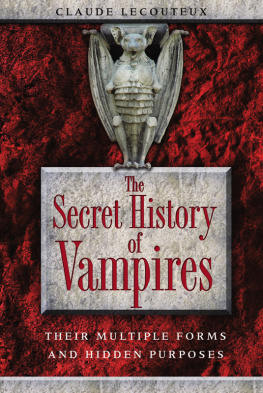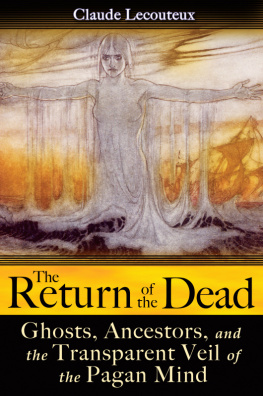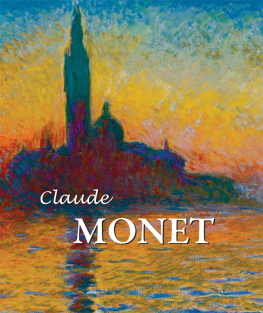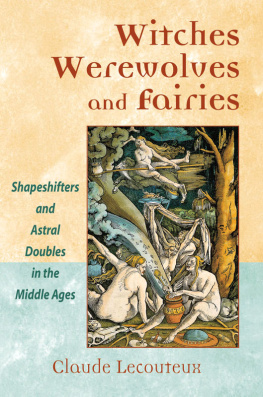Claude Lecouteux - The Tradition of Household Spirits
Here you can read online Claude Lecouteux - The Tradition of Household Spirits full text of the book (entire story) in english for free. Download pdf and epub, get meaning, cover and reviews about this ebook. year: 2002, publisher: Inner Traditions/Bear & Company, genre: Religion. Description of the work, (preface) as well as reviews are available. Best literature library LitArk.com created for fans of good reading and offers a wide selection of genres:
Romance novel
Science fiction
Adventure
Detective
Science
History
Home and family
Prose
Art
Politics
Computer
Non-fiction
Religion
Business
Children
Humor
Choose a favorite category and find really read worthwhile books. Enjoy immersion in the world of imagination, feel the emotions of the characters or learn something new for yourself, make an fascinating discovery.

- Book:The Tradition of Household Spirits
- Author:
- Publisher:Inner Traditions/Bear & Company
- Genre:
- Year:2002
- Rating:5 / 5
- Favourites:Add to favourites
- Your mark:
- 100
- 1
- 2
- 3
- 4
- 5
The Tradition of Household Spirits: summary, description and annotation
We offer to read an annotation, description, summary or preface (depends on what the author of the book "The Tradition of Household Spirits" wrote himself). If you haven't found the necessary information about the book — write in the comments, we will try to find it.
The Tradition of Household Spirits — read online for free the complete book (whole text) full work
Below is the text of the book, divided by pages. System saving the place of the last page read, allows you to conveniently read the book "The Tradition of Household Spirits" online for free, without having to search again every time where you left off. Put a bookmark, and you can go to the page where you finished reading at any time.
Font size:
Interval:
Bookmark:
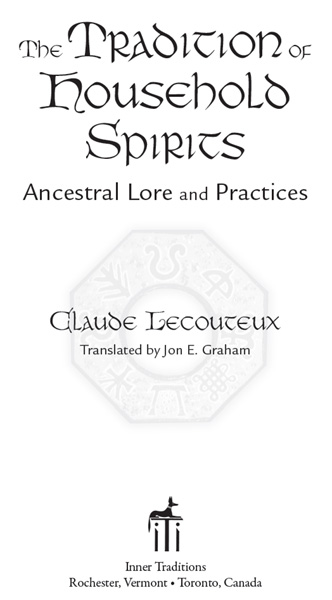
Acknowledgments
Like my other works, this one would not have been possible without the help of my friends, colleagues, and students. I would like to thank Ronald Grambo (Kongsvinger), who has long discussed domestic spirits with me and provided me with many Scandinavian studies that were unavailable in France. A huge thank-you to Bengt af Klintberg (Lidingo, Sweden) for his repertoire of knowledge on the types of Swedish legends. Herfried Vgel (Munich) was kind enough to supply me with several German documents. Francis Conte (Paris-Sorbonne) opened my eyes to the Slavic traditions. My students Florence Bayard, Astrid Guillaume, and Anne-Hlne Delavigne discovered many survivals of beliefs out in the field and provided me with an excellent dossier of photographs that, alas, could not be reproduced. I also owe many thanks to Philippe Gontier (Graulhet, Tarn), a great admirer of folklore, who pulled everything from his library that reflected my concerns and sent me copies. Thanks to them, this study was able to come into being, and I wish to express all my gratitude.
I should not forget my French publisher, Thierry Auzas, who continues to believe that what I write is worth publishing and who, book after book, helps me unmask the secrets of the figures of popular mythology for a wide audience.
Foreword
In Jean Giraudouxs charming comedy Intermezzo, the druggist exclaims: All symbols have their meanings. We only have to interpret them. (Act I, Scene 1) But it was man who created symbols when fashioning his sociocultural world. Human fantasy remains an excellent subject of study for those with a real desire to become immersed in the medieval imaginal realm. As velyne Patlagean points out: The imaginal realm is formed by all the representations that pass beyond the limits established by the lessons of experience and the deductive sequences they authorize.
Those seeking to solve the problems associated with studies of the Middle Ages are confronted by many almost insurmountable difficulties. For example, descriptions of folk customs and beliefs were provided primarily by the representatives of the scholarly culture, which is to say monks, priests, clergymen, and bureaucratsessentially the spokespersons of law and order. But as a result of their tendency to write in Latin, the sources were made literary. At the same time, folk expressions were altered to agree with the grammatical and syntactical requirements of the Latin tongue. The Christianization of popular terms, often in dialect, represents a huge obstacle to understanding medieval civilization. We should also note the incorrect interpretations on the part of clerics who did not grasp the key terms of the vocabulary of preindustrial culture. There is a kind of dialectic at work between the clerical culture and the folk culture throughout the entire Middle Ages.
It is certainly inadvisable to exaggerate this social and intellectual distance between scholarly culture and folk culture, because there were ideas, sentiments, and attitudes shared by all. Every detail of daily life in the Middle Ages was fraught with meaning. The medieval man was surely greatly influenced by religion, but at the same time he maintained ideas with roots that are to be found in folk mythology. People believed that dwarves, werewolves, fairies, the undead, and other marvelous and grotesque beings were all around them. Legends, tales, and ballads are narrative forms that teach us about the mental attitude of the people of this time toward these supernatural phenomena. We should also observe the impact of secular literaturemedical and pharmaceutical treatises, treatises on astrology, grimoires, herbals, lapidaries, bestiaries, and bird bookson popular culture. In any event, behind the inconsistency of the sources we have at our disposal, and behind the array of beliefs, we can see resilient structures and enduring ideas. These beliefs are clearly mental structures that embrace values, norms, and attitudes considered valuable by the different strata of society.
Claude Lecouteux is engaged for the long haul because he is quite familiar with Jacques Le Goffs dictum that the Middle Ages never ended. There is nothing paradoxical about this. There are customs, trends of thought, and sentiments dating as far back as classical antiquity that still exist today in isolated regions of Europe.
As a Germanic scholar, historian, and folklorist, Claude Lecouteux is first and foremost an expert on the Middle Ages, and this study proposes to provide an in-depth analysis of the relationship between the house and its spirits, between man and the supernatural world. The corpus collected here is rich and diverse. On this point, the author says it is necessary to shed light on the literature by means of the civilization and vice versa, by excluding no kind of writing, and he adds that we should not reduce the perspective to clerical literature and historical texts. Nor does he confine his research to the Latin elements (chronicles, literature, historiography, catechesis, and exempla). We should take into account folklore traditions and myths, and refrain from dismissing the human substratum that produced these elements.
Here in a few words is the scientific credo of Claude Lecouteux. He never ceases to emphasize the predominant importance of philology as an analytical instrument for understanding the content and value of the texts studied. The linguistic contribution is decisive in his work. It is the lexicon that interests him, and this book on household spirits provides an eloquent testimony to that fact. The etymologies of the terms used to label supernatural beings and often obsolete notions are extremely important for clearly grasping the corpus, according to Claude Lecouteux. The names of the domestic spirits indicate their origin, appearance, and functions. In his analysis of this corpus, he discerns the mental structures of a patrimony common to all of Europe, despite the heterogeneous nature of these spirits. The notion about the sacred nature of the house is certainly universal. The house is a microcosm of the world. These domestic spirits have a very long and extremely complicated history. Belief in them is a religious, social, ecological, and economic fact.
Thanks to the erudition and meticulous nature of Claude Lecouteux, we have a better understanding of the fundamental facts of the historical evolution of these spirits over the centuries. They definitely belong to folk religion. On countless occasions I have been able to see striking and significant resemblances between the continental ideas and those of Norway on domestic spirits. In passing, I should note that the author uses Scandinavian sources in his study. This book serves as a sequel to his earlier book on dwarves and elves, which inspired him to examine the demons and spirits of the land more closely. Now we have a trilogy on place spirits, which provides us with an overall view of them. Regional studies already exist on this subject, but to the best of my knowledge this is the first time we have at our disposal a magnificent and folkloric work on genii loci, and it covers the whole of Europe.
Alas, domestic spirits no longer exist. In Norway, we say that the house spirit called the nisse has gone into hiding because no one believes that it exists anymore and no longer cares about it. However, in eastern Norway, we have a roadside sign depicting a specter in its shroud that says, Watch out for the Ghost! In Iceland, a major road was recently constructed but fear lingered about the supernatural beings in its vicinity. For this reason, additional expenditures became necessary to divert the road around the mound in which they had chosen to live.
Next pageFont size:
Interval:
Bookmark:
Similar books «The Tradition of Household Spirits»
Look at similar books to The Tradition of Household Spirits. We have selected literature similar in name and meaning in the hope of providing readers with more options to find new, interesting, not yet read works.
Discussion, reviews of the book The Tradition of Household Spirits and just readers' own opinions. Leave your comments, write what you think about the work, its meaning or the main characters. Specify what exactly you liked and what you didn't like, and why you think so.

